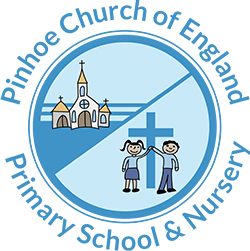Mental Health
Mental Health, Well Being and Diversity Calendar 2023/2024
Well Being and Diversity Calendar
Transition to Secondary School
This short guide provides tips about how children preparing for, or going through, the transition to secondary school can best be supported by their parents and carers. It includes guidance which explains why the transition can be difficult for some children, and practical advice such as talking and connecting with the new school, as well as suggested resources that children and parents and carers may find useful.
Try a Wellbeing Challenge!
Challenge 1 exercise body and mind (2023/24)
Challenge 2 Be Kind and Helpful
Challenge 3 Sleep well and have a good bedtime routine.pdfWorld Mental Health Day 10th October Tea and Talk pack
How do you look after your mental health?
Everyone has mental health; it's just as important as physical health. Mental health allows people to:
- realise their full potential
- cope with the stresses of life
- work productively
- play a full part in family life, school life and community life
Mental ill-health is a wide range of conditions that affect your mood thinking and behaviour. Many people have mental ill-health conditions from time to time.
Take action!
It helps to think of mental health as something you do rather than something you have. The more you put into it, the more you're likely to get out of it.
How will you model mental health to your children? Early Help for Mental Health (EH4MH) say:
“Children respond best to mental health strategies when they can see them modelled by those around them – it’s not just something we’re telling the children to do, mental health is something that everyone has, and that everyone needs to maintain.”
At Pinhoe, we use our 10 Ways to Wellbeing to help promote mental health. We talk about when we use the Ways to Wellbeing and how they make us feel. Try using the 10 Ways to Wellbeing at home. You don't have to use all of them every day!
Risk vs Resilience
All children will experience setbacks in life but a ‘wellbeing toolkit’ helps them to develop resilience and cope with challenges.
“An important key to promoting children’s mental health is an understanding of the protective factors that enable children to be resilient when they encounter problems and challenges. [Protective factors include] a sense of self-esteem and confidence; a belief in one’s own self-efficacy and ability to deal with change and adaptation; and a repertoire of social problem solving approaches.” (DfE Mental Health and Behaviour, March 2016).
Key Messages
- Mental health is everybody’s business.
- Relationships are central to good mental health.
- Each of us has our own balance between risk and resilience.
- Reducing risk or increasing resilience can make the difference between coping and not coping.
Resource ideas to promote positive mental health
Young Devon http://www.youngdevon.org/
Early Help for Mental Health http://eh4mh.co.uk
Young Minds https://youngminds.org.uk
Kooth https://kooth.com
www.youngminds.org.uk/for_parents/worried_about_your_child/anxiety
Further Recommended Resources:
- ‘A Huge Bag of worries’ Virginia Ironside
- What to Do When You Worry Too Much. A Kid's Guide to Anxiety, by Dawn Huebner
- What to Do When Your Brain Gets Stuck. A Kid's Guide to Overcoming OCD, by Dawn Huebner
- What to Do When Your Temper Flares: A Kid's Guide to Overcoming Problems with Anger (What-to-Do Guides for Kids by Dawn Huebner
- Love Bombing – reset your child’s emotional thermostat (Oliver James)
- The Blue Day Book for Kids: A Lesson in Cheering Yourself Up, Bradley Greive
- Beautiful OOPS Barney Salzberg (Author)
- Barry the fish with fingers
- No Worries! Mindful Kids: An activity book for young people who sometimes feel anxious or stressed by Lily Murray

 Cedar Tree
Federation
Cedar Tree
Federation